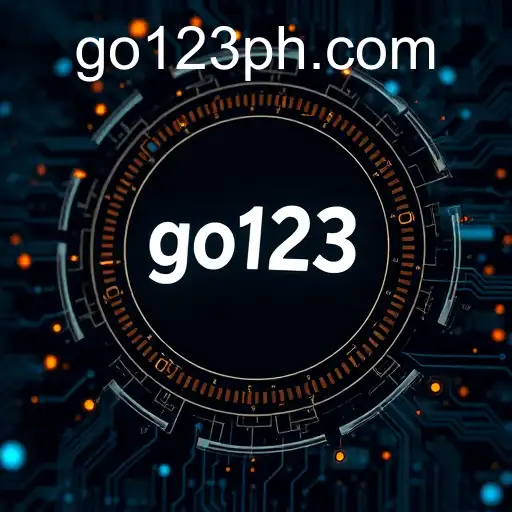
go123 - Understanding the Impact of User Agreements: The Role of 'go123'
Explore the significance of User Agreements in the digital age, delving into their legal, ethical, and practical implications, with a focus on unique identifiers like 'go123'.

User Agreement: Understanding Its Impact in the Digital Age
The Importance of a User Agreement
In today's digital landscape, the concept of a User Agreement has become pivotal for both service providers and users. These agreements, sometimes referred to as Terms of Service or Terms of Use, set the ground rules for how users interact with a product or service. They provide a legal framework that protects the interests of both parties and spells out the expectations and responsibilities involved in the use of digital tools.
What Is a User Agreement?
A User Agreement is a legally binding contract between a company and its users. It is a comprehensive document that outlines the rules, regulations, and conditions under which a user may access and use the services offered by the provider. This agreement not only protects the intellectual property rights of the company but also establishes the rights and obligations of users. By agreeing to these terms, users consent to adhere to the guidelines provided within the document.
Key Components of User Agreements
While the specific content of a User Agreement can vary from one service to another, there are several common components:
- License Grant: This section details the rights granted to the user in accessing and using the service. It specifies whether usage is restricted to certain devices or time frames.
- Restrictions: This part lays out the limitations imposed on users, such as prohibiting the distribution of content without permission or engaging in unauthorized modifications.
- User Obligations: These are the duties expected of users, which might include maintaining account security or ensuring that content shared does not infringe on third-party rights.
- Dispute Resolution: Outlining the methods for resolving any disagreements that arise, which often includes arbitration clauses to avoid litigation.
Why Terms Like 'go123' Matter in Your User Agreement
Incorporating unique identifiers such as "go123" within user agreements or promotional offers can be essential for businesses to manage targeted campaigns or services. These terms can act as promo codes, referral tags, or internal identifiers for specific agreements or conditions. They help streamline processes and ensure the right benefits or responsibilities are applied to relevant users.
Legal and Ethical Implications
The legal aspects of User Agreements are profound. Non-compliance with these agreements can lead to various repercussions, such as account termination, legal penalties, or loss of access to certain services. Companies must ensure their User Agreements are concise, comprehensive, and compliant with evolving legal standards. At the same time, they're responsible for maintaining ethical practices, ensuring transparency, and safeguarding user privacy.
From a user's perspective, reading and understanding the terms of a User Agreement is crucial. Many users tend to skip through these lengthy documents, ignoring the details that could significantly impact their digital freedoms and rights. It's essential for users to be aware of what they are consenting to, which includes understanding terms like "go123" if included as part of their agreement or service usage.
Adapting to Changes: The Dynamic Nature of User Agreements
Service providers frequently update their User Agreements to adapt to new technologies, legal requirements, and business strategies. Users may be informed about these changes through various channels such as direct notifications, emails, or upon their next login attempt. Accepting updated terms is often mandatory to continue using the service. This dynamic nature requires both users and providers to stay informed and proactive about the modifications made to these agreements.
Improving User Acceptance and Understanding
For companies, simplifying the language of User Agreements without compromising their legal validity is a step towards better user engagement and compliance. Visual aids, summary points, and easily accessible FAQs can improve user comprehension. This, in turn, can lead to improved trust and satisfaction from users who feel more informed about the services they use.
Including interactive elements that allow users to explore sections relevant to their usage patterns, or providing easily navigable formats, can further enhance understanding and acceptance of terms. By demystifying complex legal terms, service providers can cultivate more transparent and communicative relationships with their users.
The Impact of User Agreements on Digital Interactions
The presence and enforcement of User Agreements influence user behavior and the overall digital ecosystem. They govern data collection practices, content sharing, and the ways in which services are consumed. These documents not only affect individual usage scenarios but also have broader implications for industry standards and competitive practices.
Companies leveraging unique identifiers like "go123" in their agreements effectively manage and optimize user interactions. Such identifiers can facilitate smoother user experiences, personalized services, and enhanced data analytics. Ultimately, they play a fundamental role in both operational efficiency and user satisfaction.
Conclusion: The Role of User Agreements
User Agreements remain a cornerstone of digital service usage. They serve as protectors and facilitators, guiding user interactions and ensuring a lawful, fair use environment. As both a tool for legal protection and a medium for ethical engagement, these documents represent a core component of the modern digital landscape.
Understanding and appreciating the complexities of these agreements, including any special terms like "go123", enriches one's digital engagements and promotes responsible and informed participation in the technology-driven world.


GOLD VIP
Minimum deposit: ₱1,500
- ✅ 150% bonus on all deposits
- ✅ Priority withdrawal in 1 minute
- ✅ 10% cashback weekly
- ✅ VIP support 24/7
- ✅ Higher betting limits
PLATINUM VIP
Minimum deposit: ₱6,000
- ✅ 200% bonus + all Gold benefits
- ✅ Instant withdrawal 24/7
- ✅ 15% cashback weekly
- ✅ Exclusive VIP table in casino
- ✅ Special event invitations
DIAMOND VIP
Minimum deposit: ₱30,000
- ✅ 300% bonus + all previous benefits
- ✅ Dedicated personal manager
- ✅ 20% cashback weekly
- ✅ Unlimited withdrawal limits
- ✅ Exclusive trips and gifts
🚀 Register NOW and Get ₱15,000 Bonus!
⏰ LIMITED TIME OFFER! Join over 1.2 million players who have already discovered why go123 is the #1 betting platform in the Philippines. Registration in 30 seconds, first withdrawal in 2 minutes!
💬 What our players say
"Best platform I've ever used! GCash withdrawal in 2 minutes, amazing support!"
- Carlos M., Manila ⭐⭐⭐⭐⭐
"Won ₱45,000 on Gates of Olympus! They paid everything correctly via GCash."
- Ana L., Cebu ⭐⭐⭐⭐⭐
"VIP system is amazing! I have a personal manager and cashback every week."
- Roberto S., Davao ⭐⭐⭐⭐⭐
PAGCOR License
SSL 256-bit
eCOGRA
BSP Approved





